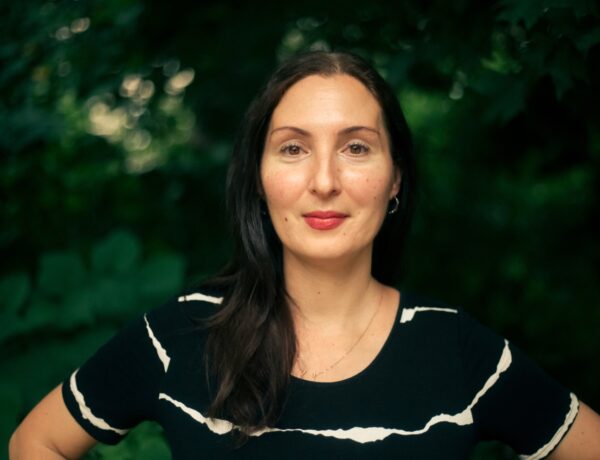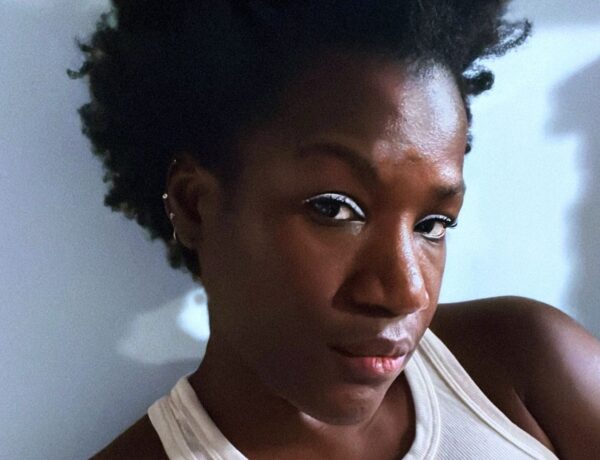Roxanna Asgarian is an award-winning reporter and author based in Dallas, Texas. Currently serving as the law and courts reporter for the Texas Tribune, Roxanna previously covered the child welfare and criminal justice systems as an independent reporter in Houston.
Her debut book, We Were Once A Family: Love, Death, and Child Removal in America is a deeply reported story of a murder-suicide that claimed the lives of six children and serves as a powerful indictment of the American foster care system.
The book is set to be published by Farrar, Straus & Giroux in March 2023. Roxanna received her bachelor’s degree in journalism from the University of Texas at Austin and her master’s degree from the Craig Newmark School of Journalism at the City University of New York.
Each week, we publish a new daily writing routine from a famous author. Subscribe to our newsletter so you don’t miss out!
Hi Roxanna! We’re delighted to have you as a guest on Famous Writing Routines. Can you tell us about your experience as a journalist and what inspired you to start writing about courts and the law for The Texas Tribune?
I think I have a brain that’s wired toward the law. I started out early in my career writing about the juvenile justice system, and doing breaking news stringing for the New York Daily News, mainly covering crime. Those early experiences showed me that the people caught up in the legal system are often facing really tough circumstances in their lives and in their childhoods.
I picked the thread up as a freelancer focused on the child welfare system for five years, which is a legal system that’s really walled off from the public in a lot of ways, and where a lot of harm comes to children early on. I also worked on several stories about victims of state violence, and some of them sued to pursue some type of justice. Now at the Trib I’m working on stuff about the legal system more broadly — mainly in the civil courts — and expanding my knowledge base into new areas of the law.
As a Texas-based journalist, what are some of the biggest challenges you face in covering the courts and law in the state?
Texas has a sort of patchwork system in its civil district courts for making information public. In some counties, it’s the easiest thing to pull up court filings, and in other places, it’s hard and expensive. Texas is also just a huge state, so keeping an eye on the courts is a major undertaking.
Your work has appeared in notable publications such as The Washington Post and New York. What was it like to see your work recognized and published by these outlets for the first time?
It’s interesting because my first job out of grad school was as a copy editor for New York Magazine. So I got to see the inner workings from that vantage point first, and it wasn’t for another few years that I got my first story on their site. As a freelancer, there’s so much uncertainty and so many false starts, so to get good stories in big outlets feels really great.
We Were Once a Family was a recipient of the 2022 J. Anthony Lukas Work-in-Progress Award. Can you share more about the book and the process of writing it?
The book started as a breaking news assignment from The Oregonian, which is Portland’s daily newspaper. I was sent to the homes of the birth family of three children who were part of a large adoptive family (six children from two sibling groups) whose matriarch had driven them all off a California cliff to their deaths.
The couple was two white women; the children were Black and biracial. And in the homes of that first birth family I met, I was deeply struck by the layers to their grief and to the injustice they’d experienced. The book unfolded from that, to include an older sibling that was passed up for adoption and spent much of his life in foster care, and the birth mother of the other 3 kids, who experienced homelessness, child sexual abuse, and mental illness.
The story had made national news, and the coverage was almost totally focused on the white women. The book was an attempt to correct for that, to put the focus on the children, where they came from, and the systems that repeatedly failed them.
Discover the daily writing habits of authors like Stephen King, Neil Gaiman, and Gillian Flynn with Famous Writing Routines Vol. 1 and learn how to take your writing to the next level. Grab your copy today!
What did a typical writing day look like for you when you were working on the book?
I got the book deal two weeks before the country locked down in March 2020. So the process was not what I thought it would be going into! I ended up spending about 9 months outlining the story, solving some tricky structural problems, and continuing to report on the child welfare system to bolster my knowledge of its inner workings.
My son was 3 in 2020 and he was home with us for most of the next year and a half; my husband was also working from home. So this wasn’t conducive to the kind of focus I needed to write this very intense book. I ended up doing writing trips to the Hill Country once a month — I’d spend the month gathering all the material for the chapter I was going to write, and then 4-5 long, intense days writing the chapter up. It helped that I was then able to come out of writing mode, which, because of the emotional aspect to the material, was really draining.
What is your daily reporting routine like? Do you have any specific habits or rituals that help you stay focused and productive?
The reporting is the intuitive part, I think. I kept a running list of the things I still needed to tell the story well — sometimes this would be yet another conversation with one of the family members. Other times it was a subject deep-dive, which I could do in between other freelance assignments. But when I was fully in writing mode, in 2021, I took 6 months off of assignments and focused solely on the book. That was financially draining, but necessary for me to be able to give the book what it needed.
If you could have a conversation with an author throughout history about their writing routine and creative process, who would that person be?
Maybe Joan Didion? I read a lot of her work before I went to grad school for journalism (at CUNY Newmark), and it was really inspiring to see someone writing with such style about such a wide array of topics, and she also wrote novels! Would love to know more about how she did that.
I’d love to know about the books you’re reading at the moment. What have been some of your favourite reads?
Well, I will say that I’m just emerging from a break from heavy books, because my brain was mush for about six months after the book wrapped! For people with an interest in child welfare, I highly recommend Dorothy Roberts’s new book, Torn Apart: How the Child Welfare System Destroys Black Families—and How Abolition Can Build a Safer World. I loved Rachel Aviv’s Strangers to Ourselves and Emi Nietfield’s Acceptance. And I recently read Demon Copperhead by Barbara Kingsolver; I really loved her depiction of foster care in the book.
What does your current writing workspace look like?
I have a desk in my guest room where I spent a portion of the day. And I also often pop around to a couple coffeeshops in my neighborhood in Dallas, which is where I like to send emails and do research. But now that I’ve gotten a taste of writing on ranches around cows and chickens, there’s really nothing that beats that.
Affiliate disclaimer: Some links on this website are affiliate links. We may earn a small commission if you make a purchase through these links, but only promote products we truly believe in. We disclose affiliate links and give honest reviews.



No Comments